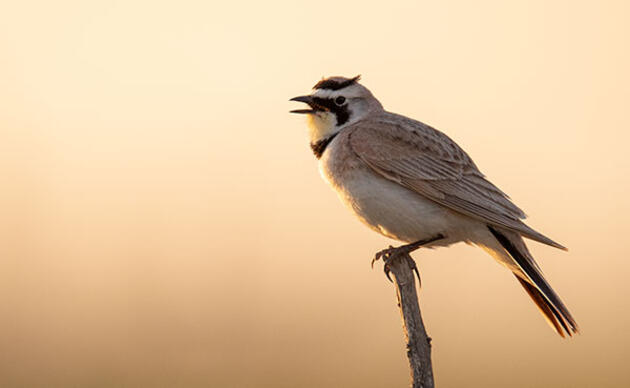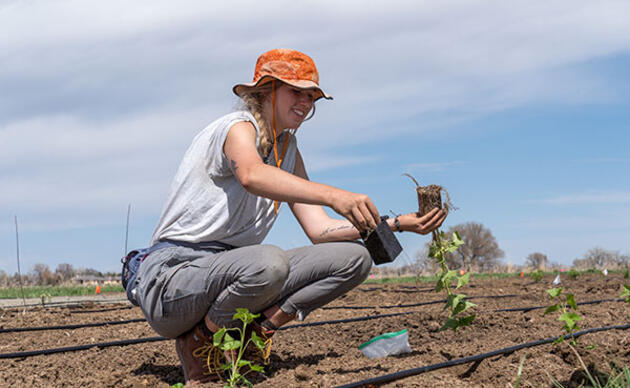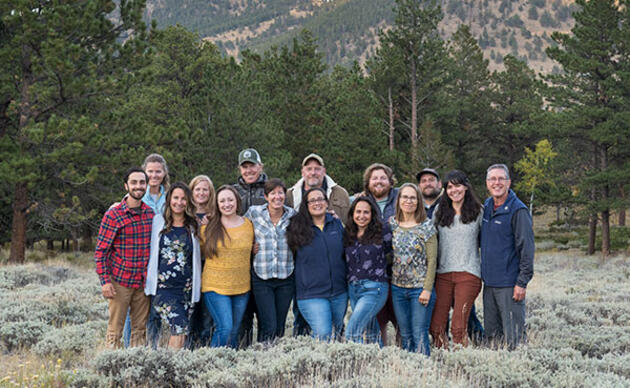As part of this month's watering can campaign and our focus on water conservation, we're sharing this piece by our Communications Director, Susan J. Tweit, adapted from the anthology Going Green, edited by Laura Pritchett. (The essay first appeared in High Country News.)
Throwing Out the Dishwater
Once I lived in a one-room cabin where I pumped my water from a well and heated it on a wood stove. When I was finished washing my dishes, I carried the dishpan outside and tossed the water on the nearby sagebrush.
It seemed natural to me to return the water to the same ground I pumped it from. The extra "rain" from my dishpan nurtured the patch of sagebrush off my tiny porch, keeping it green and fragrant even in dry years. I was careful not to foul my supply: I used biodegradable soap, my disposal site was far from the well itself, and the groundwater deep beneath the surface was buffered by the natural filter of soil.
Nowadays my house is serviced via pipes from the main under the street. Water appears at the twist of a faucet handle and vanishes in a swirl down the drain with no effort on my part. Such easy access is a mixed blessing.
Water is a limited resource here in the arid West, but you wouldn't know it. No matter the amount of precipitation we receive—whether last fall's floods or this spring's drought—our municipal supply pours out of the pipes unchecked.
I miss the effort I used to expend on drawing water: prime the pump, wait for it to pull liquid from below the surface, pump again, then open the faucet to fill the jugs, and lug them down the hill and across the porch to the cabin.
The pumping time and flow varied from season to season and year to year with the variation in precipitation. Carrying the water from pump to cabin gave me direct feedback on my consumption: at eight pounds per gallon, I felt every cup. It was a powerful incentive for conservation.
I'm not going to rip out my plumbing. Still, I want to do something to honor the reality of the water supply I depend on. So I bought a dishpan to collect the water from the kitchen sink, which I pour onto my compost pile.
The dishpan holds 11.4 quarts, slightly less than 3 gallons, and I empty it twice a day. That's around six gallons, a fraction of the 271 gallons each person in my small community consumes per day on average. But it's enough to remind me that the water I use does not come free: energy to run pumps and purifiers and to add manufactured chemicals is required in moving that liquid from groundwater to my house to sewage plant to river.
Spilling the dishwater onto the compost pile, I am returning some of what I use every day to the soil, where it can percolate through the layers, cleansed by the lives under the surface, and recharge the aquifer I draw from.
Throwing out my mite of dishwater won't solve my community's water problems, but it will hone my awareness. It's a private act, an everyday ritual that links me to the consequences of my actions: the more water I use, the more dishpans I haul.
It is also a spiritual choice. By taking responsibility for my used water instead of merely sending it "away" down the drain, I commit myself to honesty about my impact on this landscape. In that small way, I acknowledge that my fate rests with that of the community of beings dependent on the natural cycles of weather and water and time.
As I spill out my dishwater, I honor the connection between the water that sustains my life and the piece of earth I call home.
Our mission: Garden by garden, grow a network of habitat for songbirds and pollinators across the Rocky Mountain region and beyond; save water for our streams and rivers and restore the joy of seeing nature every day. Join Audubon Rockies, Plant Select® and High Country Gardens in promoting wildscaping. Be a Habitat Hero!
By Habitat Hero
Stay in the Know
Sign up for emails to stay up to date on how you can help and enjoy birds in Colorado, Wyoming, and Utah.




